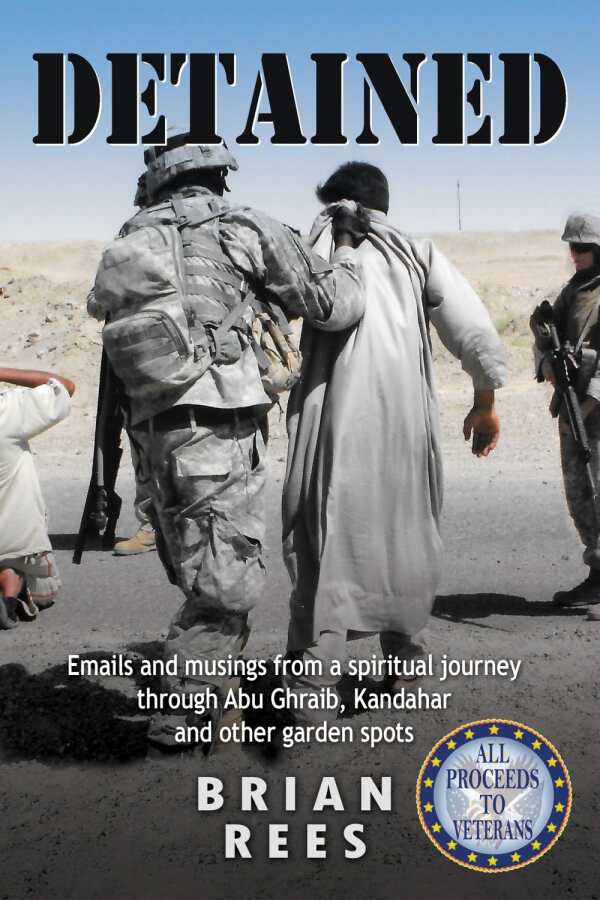
Detained
Emails and Musings from a Spiritual Journey through Abu Ghraib, Kandahar, and Other Garden Spots
- 2015 INDIES Finalist
- Finalist, War & Military (Adult Nonfiction)
Rees’s fluid writing keeps the pages turning in this detailed account of tours in Iraq and Afghanistan.
In his third nonfiction book, Detained, Brian Rees intersperses witty e-mail updates from his tours of Iraq and Afghanistan with clued-in commentary about war tactics, terrorism, Islam, and the benefits of transcendental meditation (TM) for soldiers with PTSD. The mixture of formats and topics generally works well, though the spiritual material deserves its own book.
Rees, who had been part of the US Army Reserve Medical Corps since 1976, volunteered for overseas deployment after 9/11 and completed five deployments to the Middle East between 2005 and 2013. His academic specialty is in TM as a method of combating PTSD in soldiers and refugees. His e-mails to family and friends informally recount daily woes (such as the 118-degree heat) and more sobering tasks like attending to IED (improvised explosive devices) victims. By appending helpful information about America’s wars, Islam, and the US abuses of Iraqi prisoners in Abu Ghraib, Rees also reexamines his own prejudices.
E-mails are separated from narrative sections by font and tone; they are jokey, in the moment, and often uncapitalized. Rees chooses just the right details: struggling to sleep through artillery fire, horsing around with sniffer dogs and interpreters, cursing an ingrown toenail, and beating boredom with cheap haircuts and Friday night boxing. The book even elevates everyday losses through beautiful metaphors, as in the “Marine’s hand held the trailing edge of the body bag more like a priest would grasp a holy cloth or a child his mother’s hem.”
Although the e-mails are best in terms of pure enjoyment, the remainder of Detained is full of sensitive discussions of terrorism and just war theory. As the reference list and index attest, Rees has done considerable research and backs up his opinions with insights from the fields of theology, philosophy, and psychology. He always seeks to understand the other side of debates: he sees why some Muslims overseas resent Americans, and he says that Iraq War conspiracy theories have some validity. This balanced perspective should make his book palatable to readers from across the religious/political spectrum.
From part 3 onward, TM keeps creeping in, discussed in more detail than seems necessary for a side topic. “I didn’t start out to write a ‘TM book’ but it seems to be applicable in just about every chapter,” Rees asserts. Better to focus on war experience and terrorism in this book, and publish a separate, more academic tome about TM and PTSD. Still, there’s no denying Rees’s expertise, and his fluid writing keeps the pages turning.
This could make a fascinating companion volume for fans of recent war fiction such as The Yellow Birds, Redeployment, and War of the Encyclopaedists.
Reviewed by
Rebecca Foster
Disclosure: This article is not an endorsement, but a review. The publisher of this book provided free copies of the book and paid a small fee to have their book reviewed by a professional reviewer. Foreword Reviews and Clarion Reviews make no guarantee that the publisher will receive a positive review. Foreword Magazine, Inc. is disclosing this in accordance with the Federal Trade Commission’s 16 CFR, Part 255.
